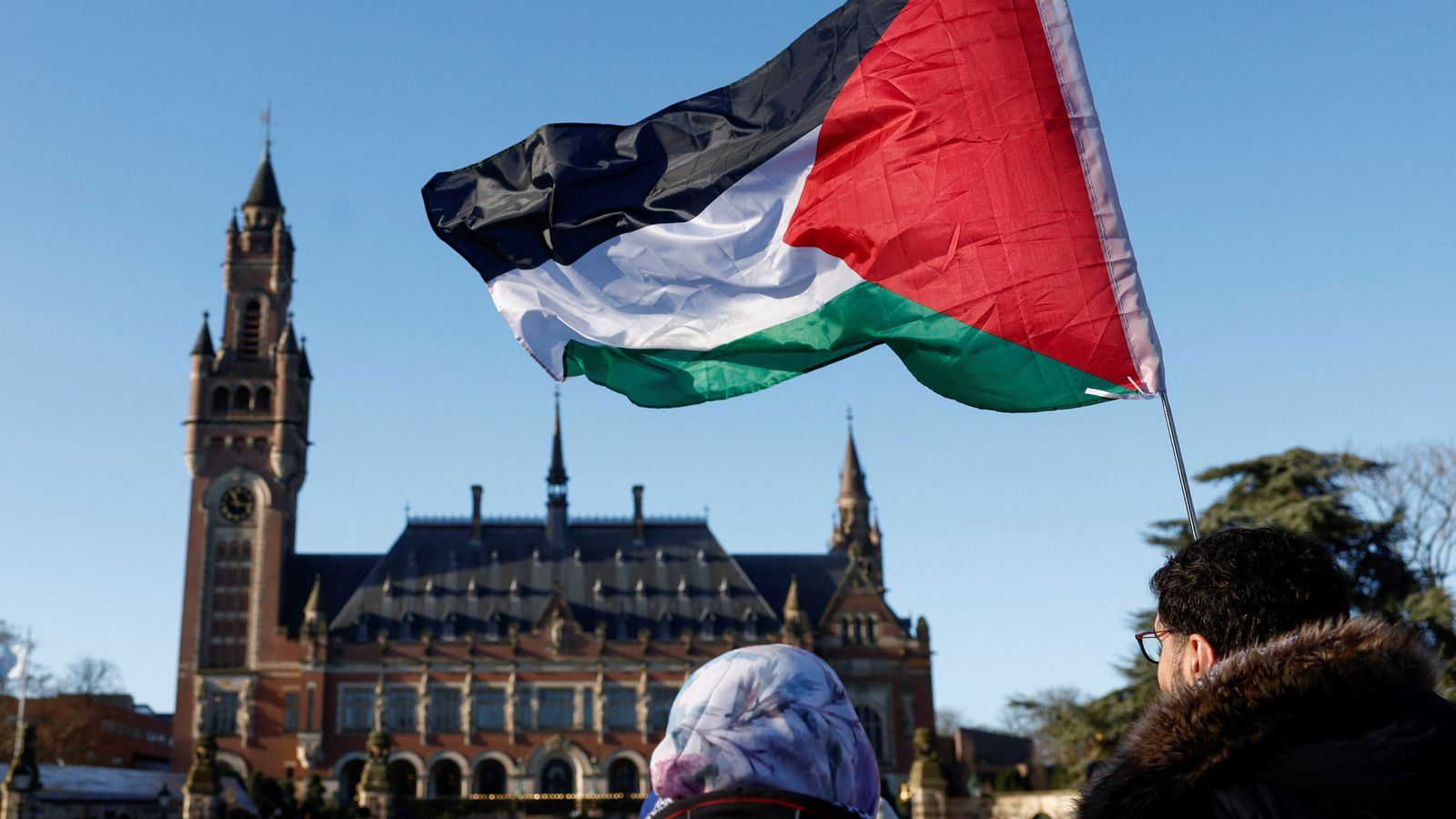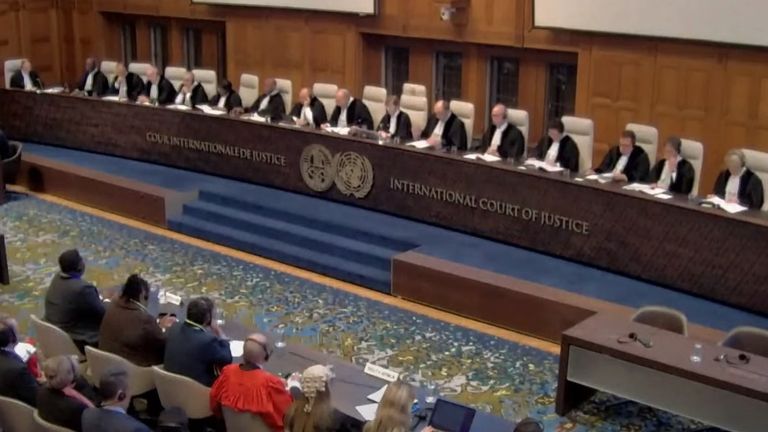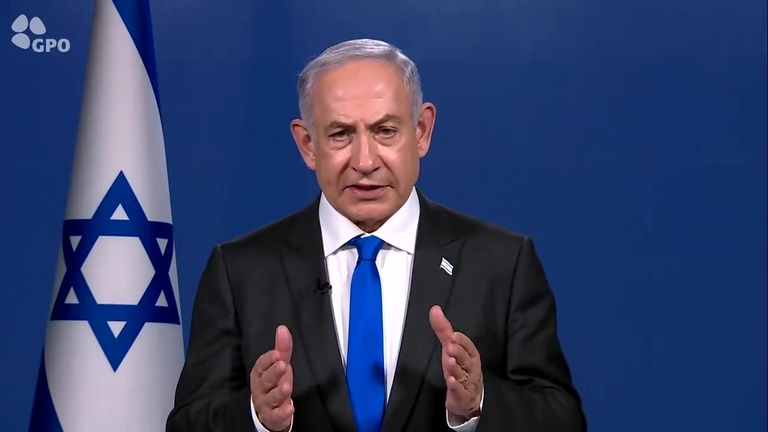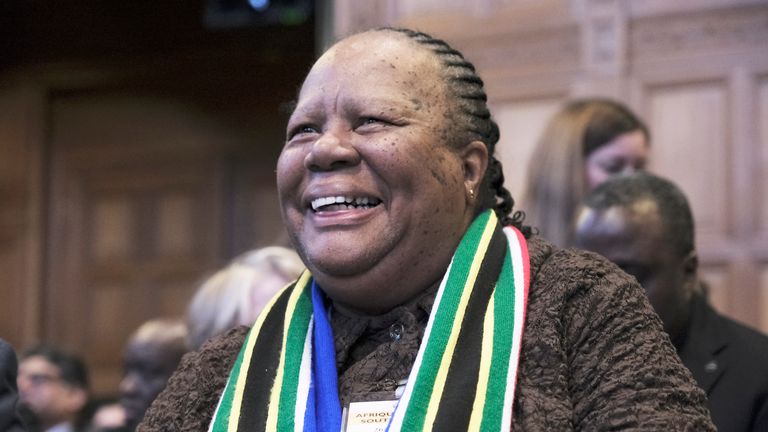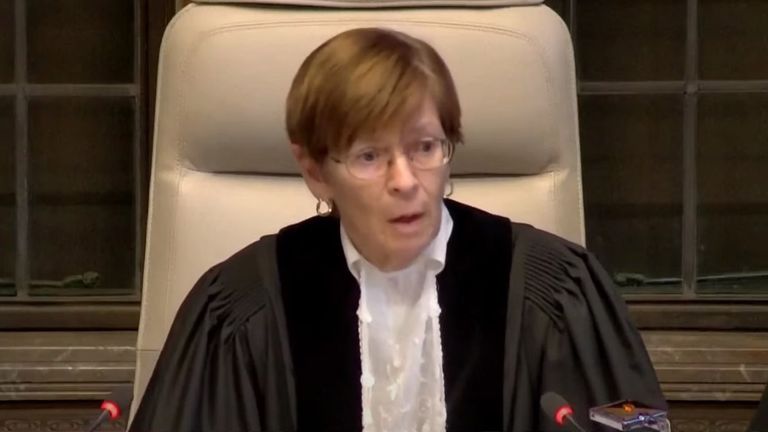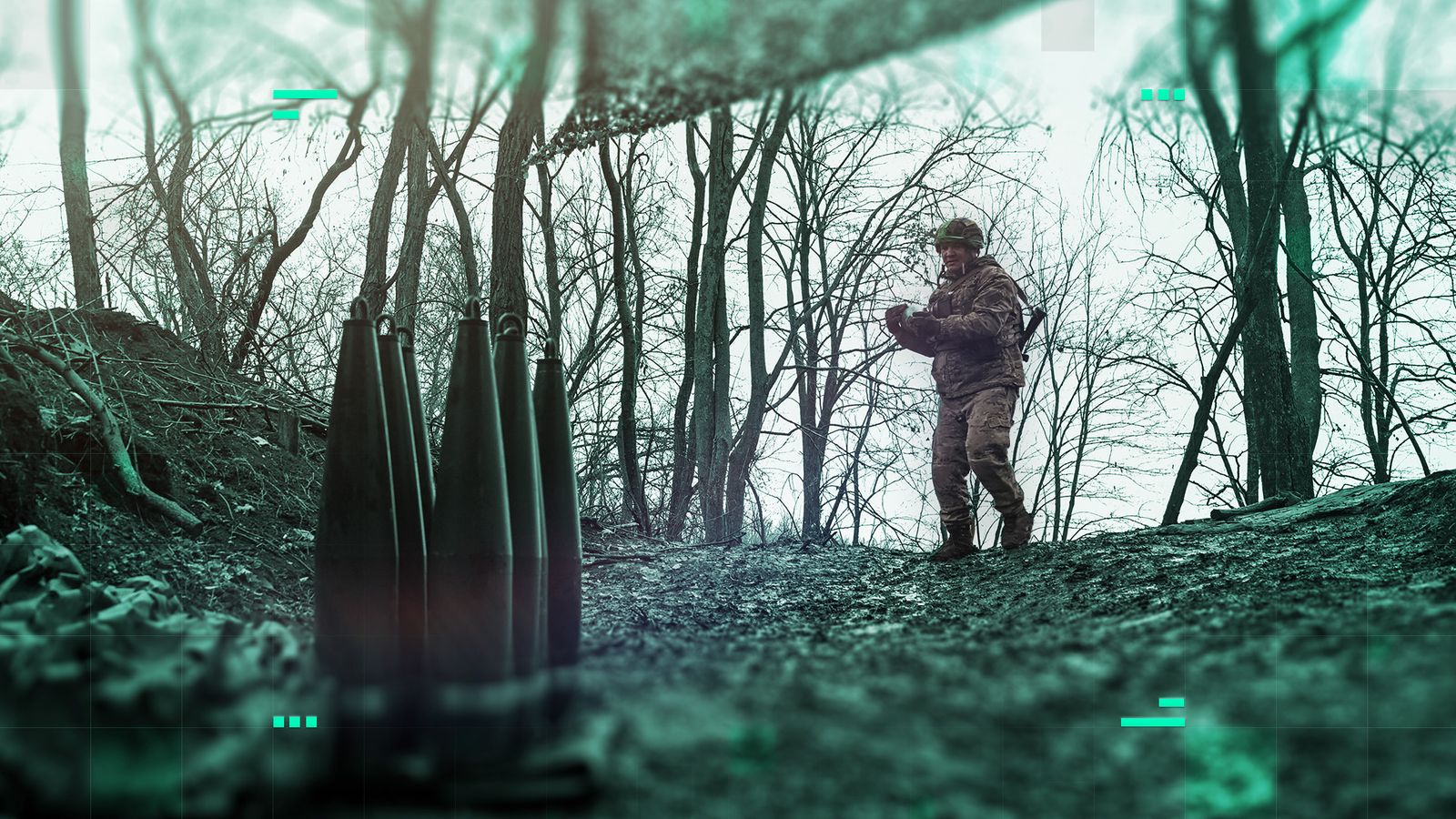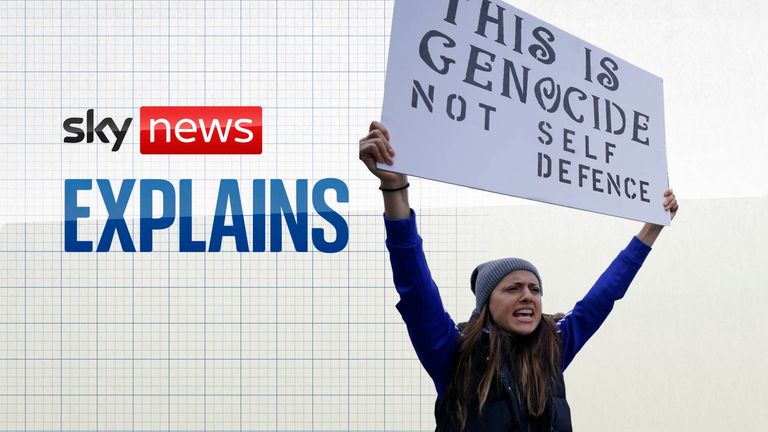
An international court has demanded that Israel should do everything in its power to prevent acts of genocide in Gaza – but stopped short of ordering an end to its offensive.
The ruling by judges at the International Court of Justice (ICJ) comes at an early stage in South Africa’s case alleging that Israel’s military action in its war with Hamas in Gaza is genocidal.
South Africa welcomed the measures describing the ruling as a “decisive victory for the international rule of law”; while Israel’s national security minister, Itamar Ben-Gvir, posted on X saying: “Hague schmague”.
The court ruled it has jurisdiction to hear arguments and it therefore denied Israel’s request that it throws out the case.
It ordered Israel to take all measures within its power to prevent genocide and report back to the court within one month.
South Africa filed the case, arguing Israel is breaching the UN convention on genocide by “killing Palestinians in Gaza, causing them serious bodily and mental harm, and inflicting on them conditions of life calculated to bring about their physical destruction”.
Follow live: ICJ dismisses Israel’s request for case to be thrown out
While the 17 judges consider the genocide allegations – which may take years to rule on – South Africa asked the court “as a matter of extreme urgency” to issue an interim order compelling Israel to suspend military operations to protect Palestinians in Gaza while the case proceeds slowly through the court.
“The court is acutely aware of the extent of the human tragedy that is unfolding in the region and is deeply concerned about the continuing loss of life and human suffering,” Joan Donoghue, the court’s president, said.
In the ruling, 15 of the 17 judges on the panel voted for emergency measures which covered most of what South Africa asked for, with the notable exception of a halt to military action in Gaza.
Palestinians have welcomed the provisional measures ordered by the court, with foreign minister Riyad al Maliki saying: “The ICJ judges assessed the facts and the law, they ruled in favour of humanity and international law.”
Mr Maliki added that the Palestinian authority called on all states to ensure the measures ordered by the court are implemented “including by Israel, the occupying power”.
Senior Hamas official Sami Abu Zuhri said: “The International Court of Justice ruling is an important development that contributes to isolating the occupation and exposing its crimes in Gaza.
“We call for compelling the occupation to implement the court’s decisions.”
Israel’s prime minister Benjamin Netanyahu criticised the case as “outrageous” and vowed to continue the military action.
“We will continue to do what is necessary to defend our country and defend our people,” he said.
“Like every country, Israel has an inherent right to defend itself.
“The vile attempt to deny Israel this fundamental right is blatant discrimination against the Jewish state, and it was justly rejected.”
The country’s national security minister, Itamar Ben-Gvir, in response to the ruling posted on X saying: “Hague schmague”.
South Africa welcomed the ruling, and said it “will continue to do everything within its power to preserve the existence of the Palestinian people as a group, to end all acts of apartheid and genocide against the Palestinian people and to walk with them towards the realisation of their collective right to self-determination, for, as Nelson Mandela momentously declared, ‘our freedom is incomplete without the freedom of the Palestinians’.”
Speaking from Pretoria, South African president, Cyril Ramaphosa said that “Israel’s crimes against the Palestinian people had been laid bare”.
He added that the country “firmly believe that following the ICJ judgement there should be more concerted efforts on a ceasefire” and that he expects Israel to abide by the ruling.
Speaking at outside the court, South Africa’s minister of international relations and cooperation Naledi Pador said: “We believe the moment is now right to open negotiations for a two-state solution to end this conflict decisively.”
She added that she believed in order to implement the order Israel would have to instigate a ceasefire.
“How do you provide aid and water without a ceasefire? If you read the order, by implication a ceasefire must happen,” she said.
The ICJ’s rulings are final and without appeal, but it has no way of enforcing them.

